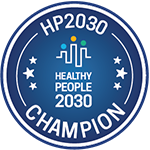Great American SmokeOut 2012
If you or someone you know is a smoker, the idea of quitting (or helping someone else to quit) has probably crossed your mind. Almost 70% of smokers want to stop smoking, and about 52% of them try to stop each year. The Great American Smokeout (GASO), sponsored by the American Cancer Society, takes place every year on the third Thursday of November. It was established to encourage smokers to not smoke on that day and to make plans to quit smoking for good.
Why Is It Hard to Quit Smoking?
That’s an easy answer. It’s nicotine, a chemical that is in all tobacco products. Research suggests that nicotine is as addictive as heroin or cocaine. More people in the United States are addicted to nicotine than to any other chemical.
Because nicotine is so addictive, people can find it hard to quit smoking. They may feel more irritable or anxious; have trouble concentrating; and have an increased appetite when they try to stop. These are some of the symptoms of withdrawal from nicotine. Because these symptoms are uncomfortable, many people begin smoking again. The 2008 Clinical Practice Guideline Treating Tobacco Use and Dependence concluded that “Tobacco dependence is a chronic disease that often requires repeated interventions and multiple attempts to quit.”
Most smokers try to quit several times before succeeding. But many, many people succeed. In fact, the number of former U.S. smokers has exceeded the number of current smokers since 2002. Smokers can learn from previous quit attempts and be better prepared to overcome the specific challenges (sometimes called triggers) that cause them to start smoking again. With continued encouragement and support, many people keep trying until they succeed in stopping smoking for good.
What Is the Best Way to Stop Smoking?
There are many ways to quit smoking, but no single way works for everyone. You need to keep trying until you find a specific treatment or combination of treatments that best suits your individual needs and gives you the best chance of quitting permanently. Most importantly, don’t give up trying to quit. Seek out people who will offer you support and encouragement.
Learn from a Former Smoker
Ms. Tina Long, a former smoker, stopped by the Health Department to talk with Ed Jones, Health Department Health Promotion Coordinator.
Learn more about Tina.
Resources to Help You Quit
There are many proven services and treatments can ease withdrawal symptoms and help you quit. Although many people quit without medication, FDA-approved medications, combined with counseling, can greatly increase the likelihood of quitting successfully. Combining medication and counseling is more effective than either medication or counseling alone.
For support to help you quit, call 1-877-270-STOP (7867). You can get free support and advice from experienced counselors, a personalized quit plan, self-help materials, the latest information about cessation medications, and more.
Online services and resources are also available through the following Web sites:





